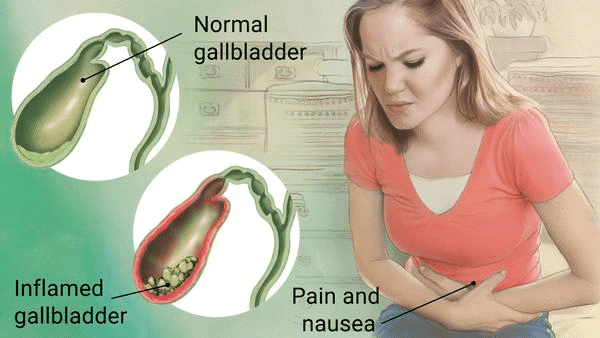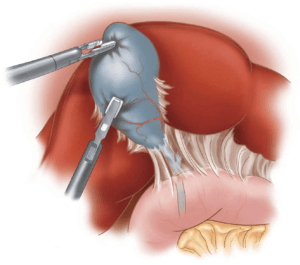What is Laparoscopic Cholecystectomy?
Gallbladder removal is one of the most commonly performed surgical procedures. Gallbladder removal surgery is usually performed with minimally invasive techniques and the medical name for this procedure is Laparoscopic Cholecystectomy or Laparoscopic Gallbladder Removal.
Take the first step on your journey to a healthy life
IBI Healthcare Institute provides an unmatched patient experience and outstanding results. You matter to us.

Would you like to meet with an venacure expert at georgia surgicare?
Dr. Angelina Postoev is the resident Venacure expert here at Georgia Surgicare. For patients in the Metro Atlanta area, throughout Georgia and beyond, Dr. Angelina is available to meet with you and help determine whether a Venacure is right for you. Please reach out to Georgia Surgicare today and request a consultation with Dr. Angelina.
What is the gallbladder?

- The gallbladder is a pear-shaped organ that rests beneath the right side of the liver.
- Its main purpose is to collect and concentrate a digestive liquid (bile) produced by the liver. Bile is released from the gallbladder after eating, aiding digestion. Bile travels through narrow tubular channels (bile ducts) into the small intestine.
- Removal of the gallbladder is not associated with any impairment of digestion in most people.
What are the advantages of Laparoscopic Cholecystectomy removal?

- Rather than a five to seven inch incision, the operation requires only four small openings in the abdomen.
- Patients usually have minimal post-operative pain.
- Patients usually experience faster recovery than open gallbladder surgery patients.
- This treatment has a low, short-term success rate. Symptoms will eventually continue unless the gallbladder is removed. Treatments to break up or dissolve gallstones are lMost patients go home the same day of the surgery and enjoy a quicker return to normal activities.argely unsuccessful.
How are gallbladder problems found and treated?
- Ultrasound is most commonly used to find gallstones.
- In a few more complex cases, other X-ray test such as a CT scan or a gallbladder nuclear medicine scan may be used to evaluate gallbladder disease.
- Gallstones do not go away on their own. Some can be temporarily managed by making dietary adjustments, such as reducing fat intake.
- This treatment has a low, short-term success rate. Symptoms will eventually continue unless the gallbladder is removed. Treatments to break up or dissolve gallstones are largely unsuccessful.
- Surgical removal of the gallbladder is the time-honored and safest treatment of gallbladder disease.
Are you a candidate for laparoscopic gallbladder removal?
Although there are many advantages to laparoscopic gallbladder removal (cholecystectomy), the procedure may not be appropriate for some patients who have severe complicated gallbladder disease or previous upper abdominal surgery. A thorough medical evaluation by your personal physician, in consultation with a surgeon trained in laparoscopy, can determine if laparoscopic gallbladder removal (cholecystectomy) is an appropriate procedure for you.
We are big enough to cure, small enough to care.
